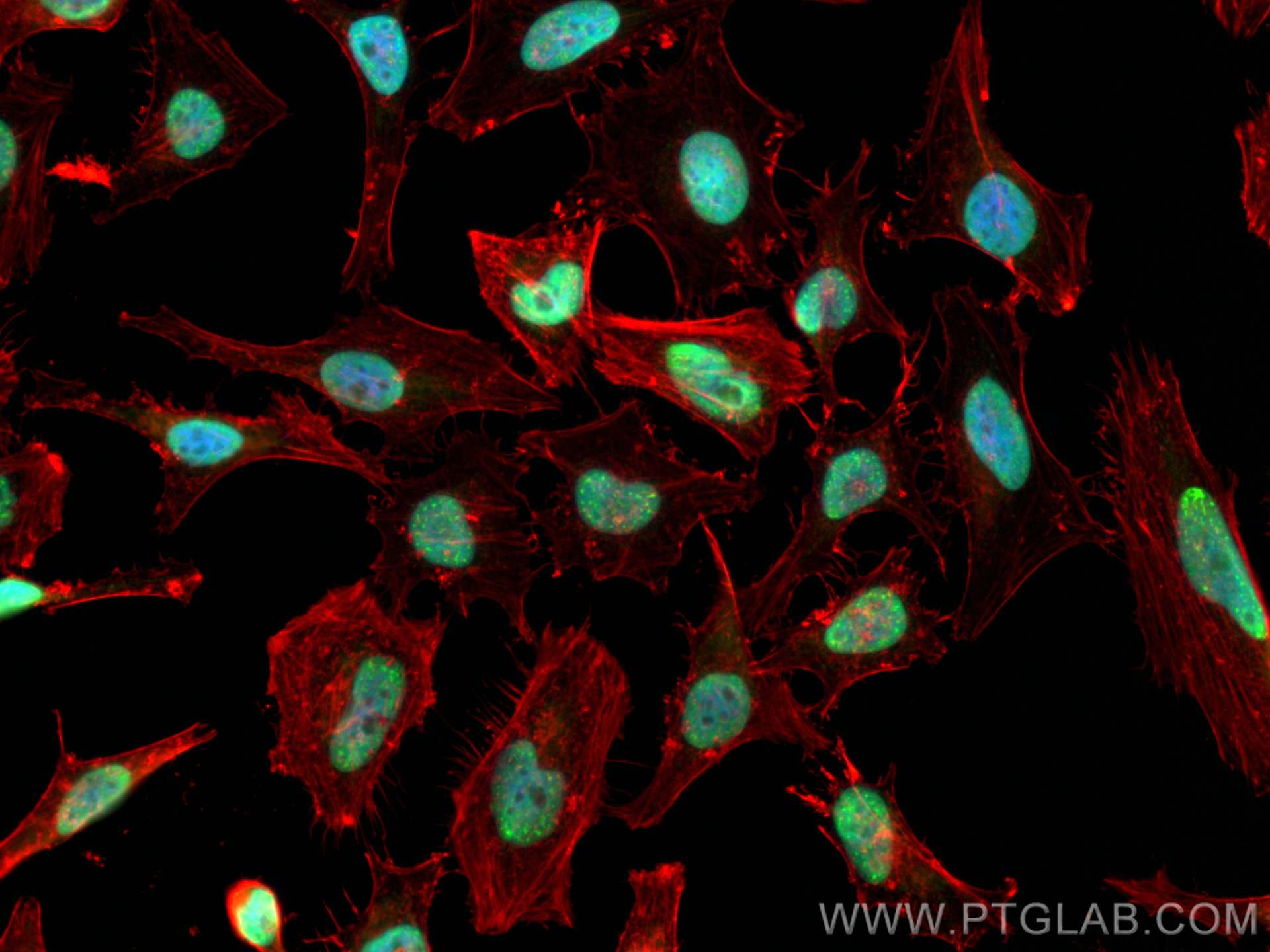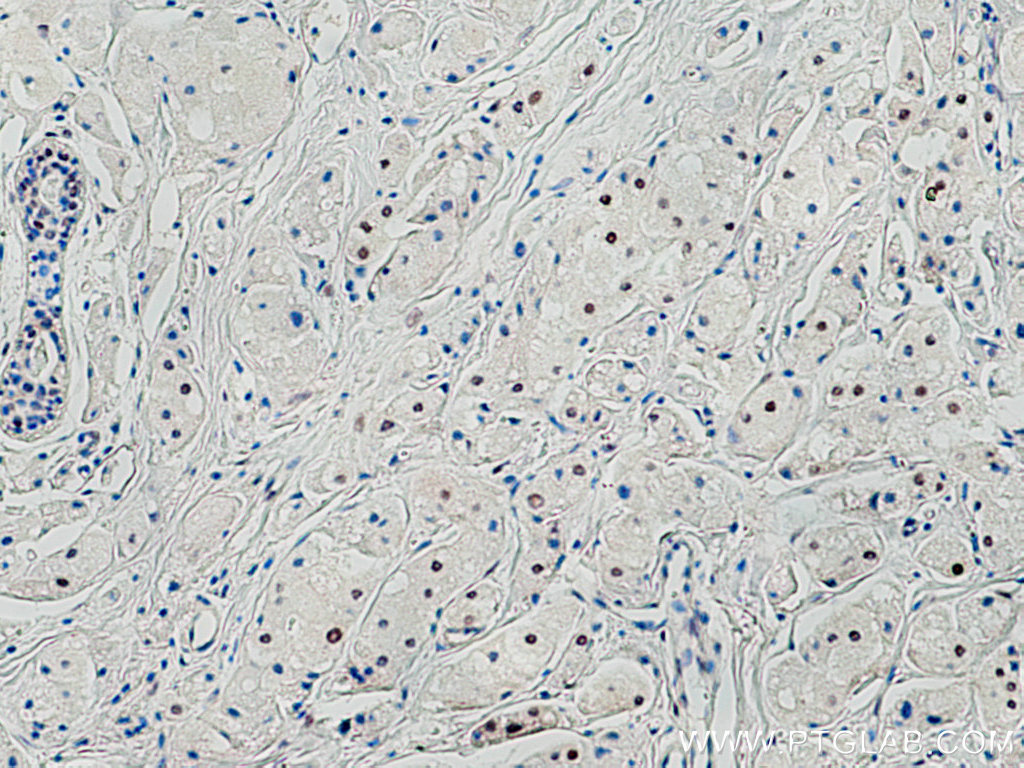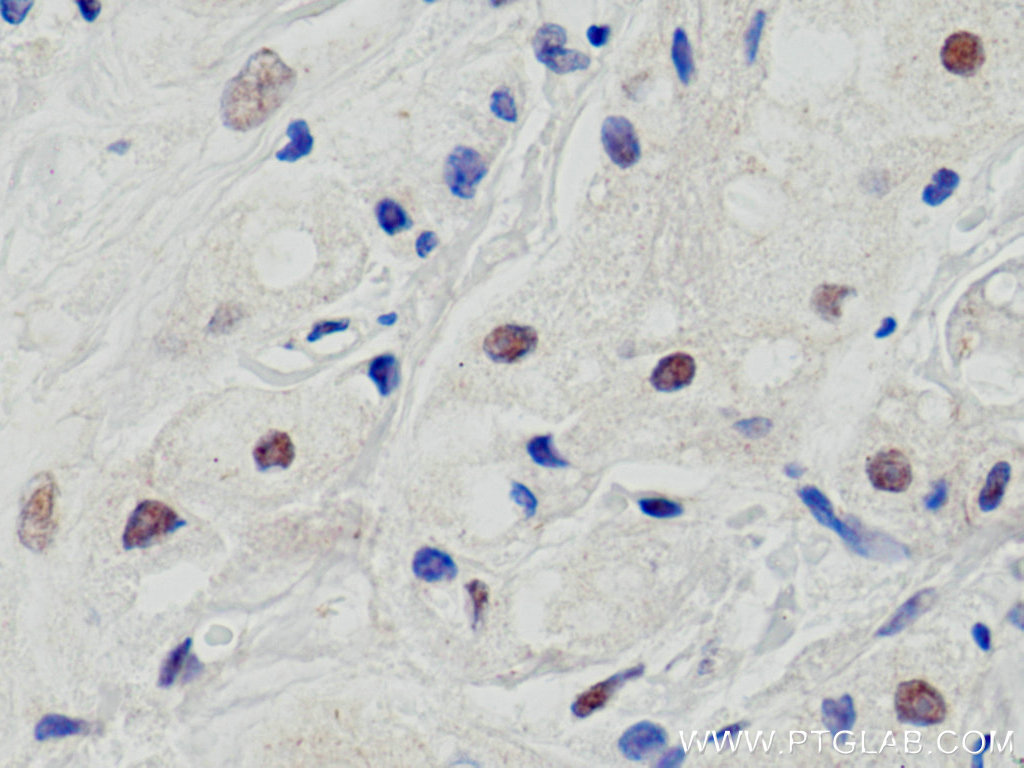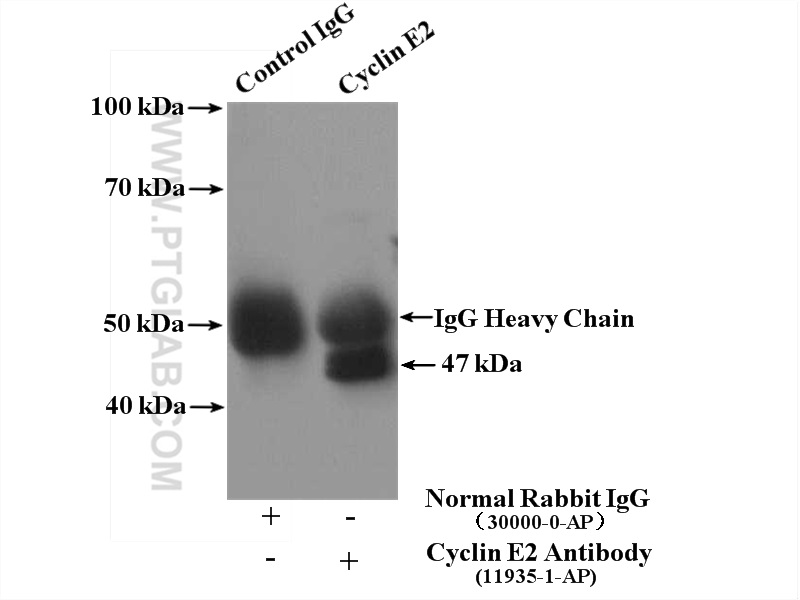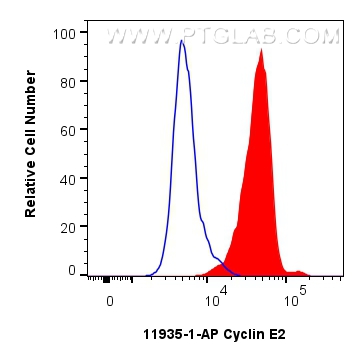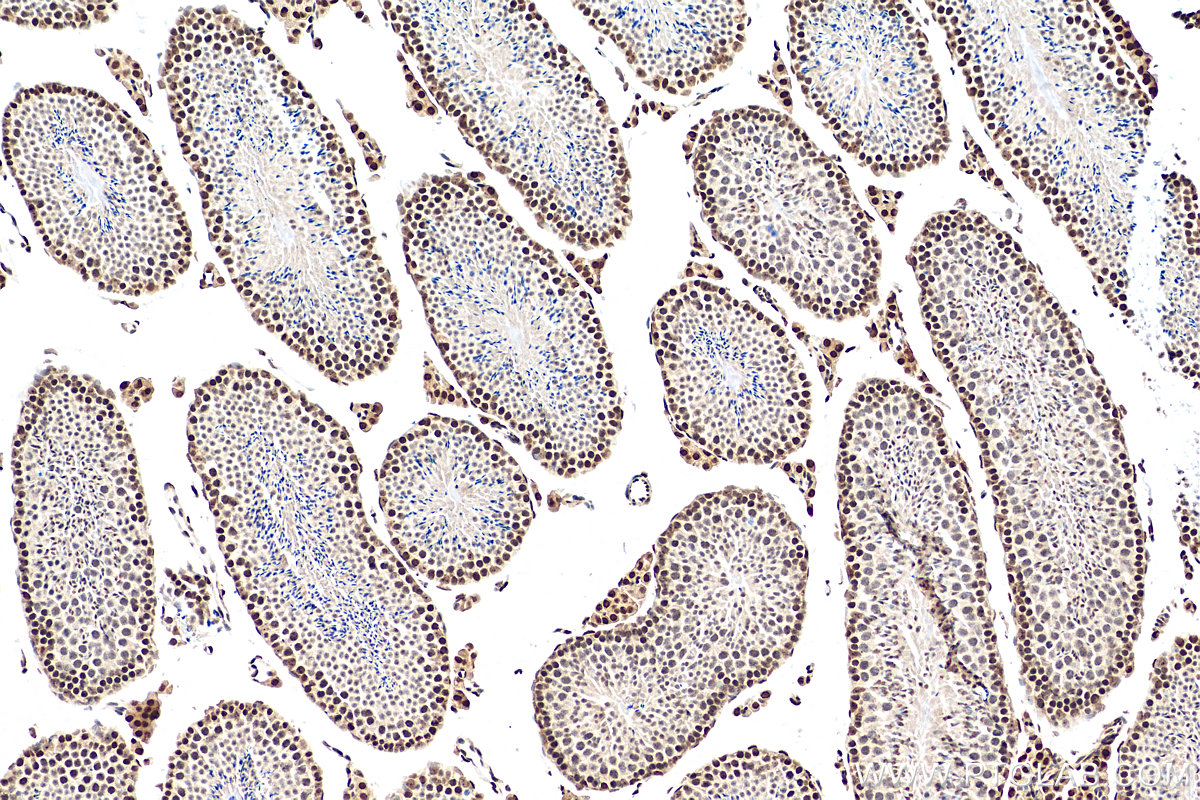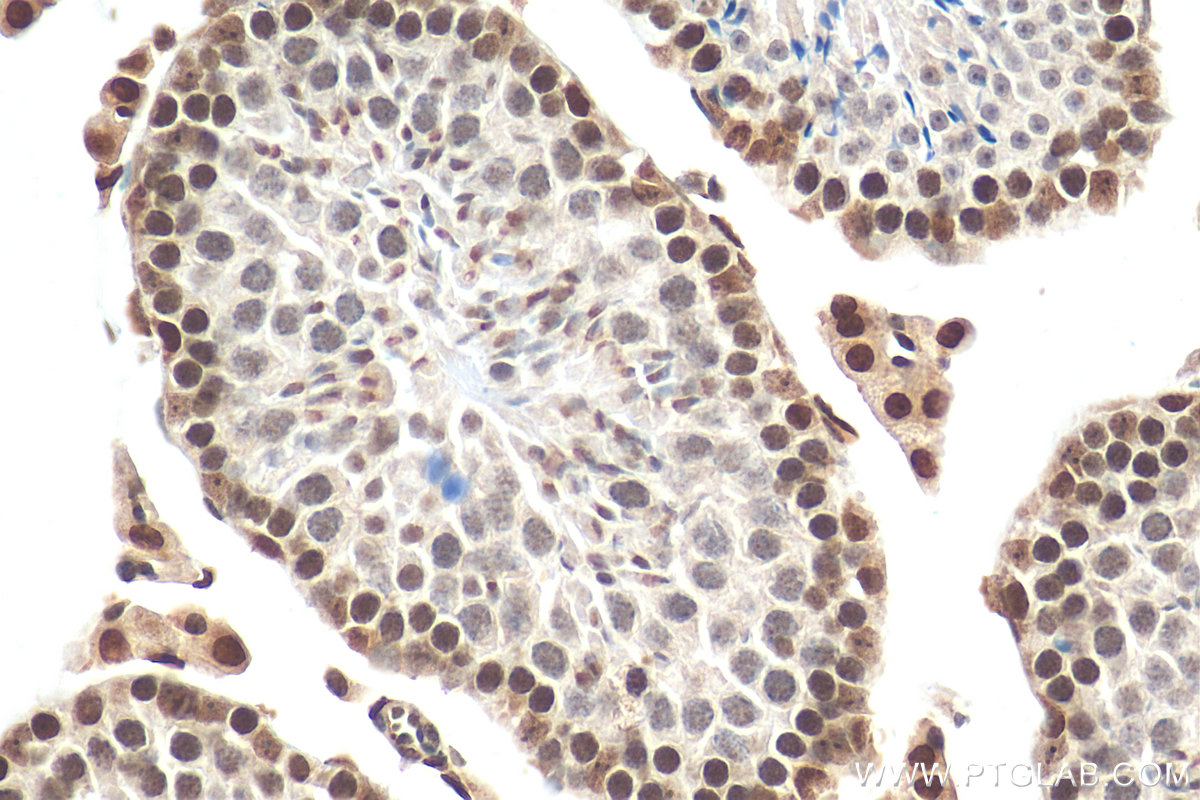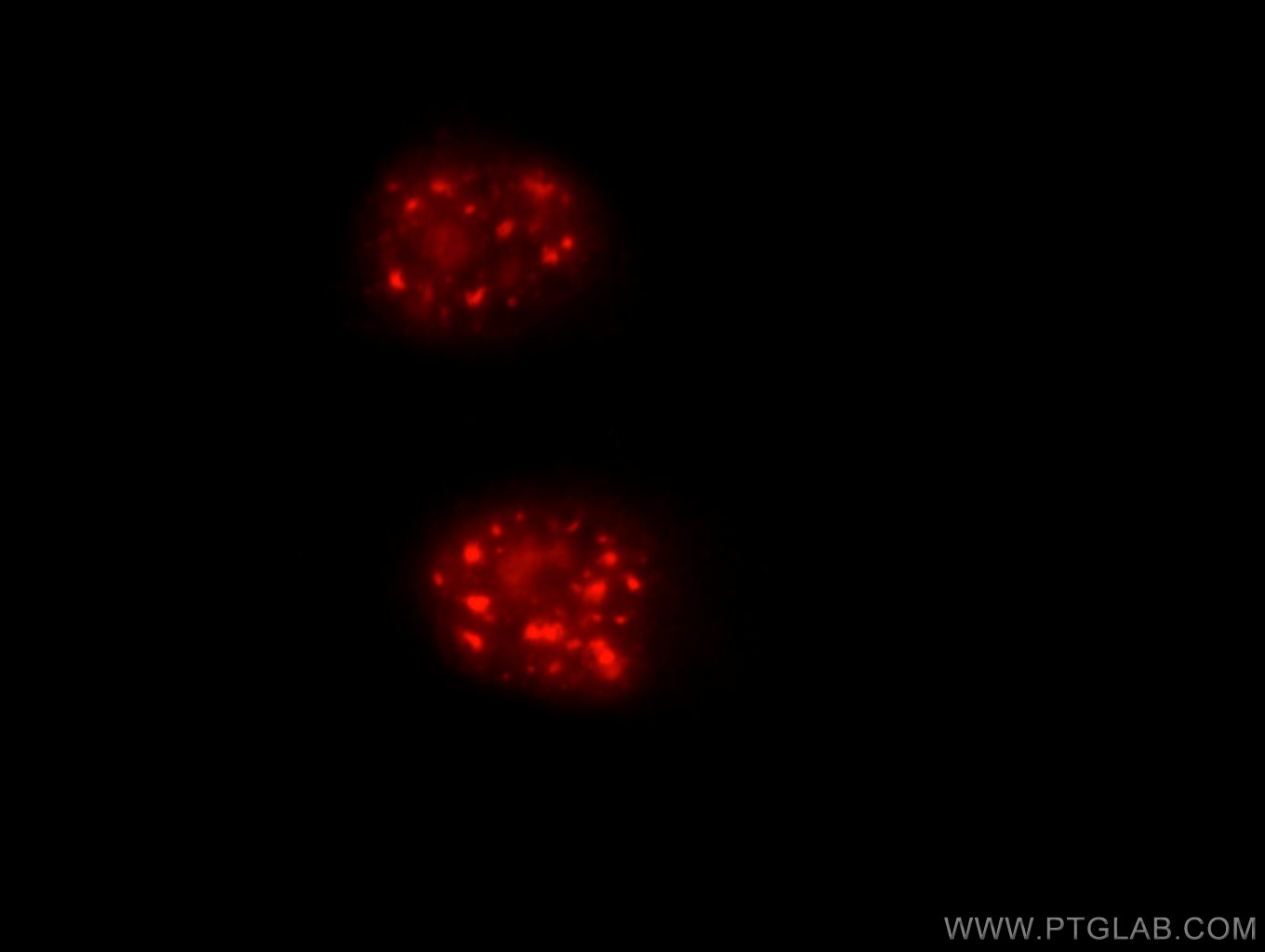验证数据展示
经过测试的应用
| Positive IP detected in | Jurkat cells |
| Positive IHC detected in | human breast cancer tissue, mouse testis tissue Note: suggested antigen retrieval with TE buffer pH 9.0; (*) Alternatively, antigen retrieval may be performed with citrate buffer pH 6.0 |
| Positive IF/ICC detected in | HeLa cells |
| Positive FC (Intra) detected in | HeLa cells |
推荐稀释比
| 应用 | 推荐稀释比 |
|---|---|
| Immunoprecipitation (IP) | IP : 0.5-4.0 ug for 1.0-3.0 mg of total protein lysate |
| Immunohistochemistry (IHC) | IHC : 1:400-1:1600 |
| Immunofluorescence (IF)/ICC | IF/ICC : 1:200-1:800 |
| Flow Cytometry (FC) (INTRA) | FC (INTRA) : 0.25 ug per 10^6 cells in a 100 µl suspension |
| It is recommended that this reagent should be titrated in each testing system to obtain optimal results. | |
| Sample-dependent, Check data in validation data gallery. | |
产品信息
11935-1-AP targets Cyclin E2 in WB, IHC, IF/ICC, FC (Intra), IP, ELISA applications and shows reactivity with human, mouse samples.
| 经测试应用 | IHC, IF/ICC, FC (Intra), IP, ELISA Application Description |
| 文献引用应用 | WB, IHC, IF |
| 经测试反应性 | human, mouse |
| 文献引用反应性 | human, mouse, rat |
| 免疫原 | Cyclin E2 fusion protein Ag2532 种属同源性预测 |
| 宿主/亚型 | Rabbit / IgG |
| 抗体类别 | Polyclonal |
| 产品类型 | Antibody |
| 全称 | cyclin E2 |
| 别名 | CCNE2, G1/S-specific cyclin-E2, G1/S specific cyclin E2, Cyclin E, CYCE2 |
| 计算分子量 | 374 aa, 44 kDa |
| 观测分子量 | 44 kDa |
| GenBank蛋白编号 | BC020729 |
| 基因名称 | CCNE2 |
| Gene ID (NCBI) | 9134 |
| RRID | AB_2228593 |
| 偶联类型 | Unconjugated |
| 形式 | Liquid |
| 纯化方式 | Antigen affinity purification |
| UNIPROT ID | O96020 |
| 储存缓冲液 | PBS with 0.02% sodium azide and 50% glycerol , pH 7.3 |
| 储存条件 | Store at -20°C. Stable for one year after shipment. Aliquoting is unnecessary for -20oC storage. |
背景介绍
Cyclin E2 (CCNE2) belongs to the highly conserved cyclin family, whose members are characterized by a dramatic periodicity in protein abundance throughout the cell cycle. Cyclins function as regulators of cyclindependent kinases (CDKs). Different cyclins exhibit distinct expression and degradation patterns which contribute to the temporal coordination of cell cycle events. CCNE2 forms a complex with and functions as a regulatory subunit of CDK2 and has been shown to specifically interact with CIP/KIP family of CDK inhibitors. CCNE2 plays a role in cell cycle G1/S transition and its expression peaks at the G1-S phase. Whereas cyclin E1 is expressed in most proliferating normal and tumor cells, cyclin E2 levels are low or undetectable in nontransformed cells, and are elevated in tumor-derived cells.
实验方案
| Product Specific Protocols | |
|---|---|
| IHC protocol for Cyclin E2 antibody 11935-1-AP | Download protocol |
| IF protocol for Cyclin E2 antibody 11935-1-AP | Download protocol |
| IP protocol for Cyclin E2 antibody 11935-1-AP | Download protocol |
| Standard Protocols | |
|---|---|
| Click here to view our Standard Protocols |
发表文章
| Species | Application | Title |
|---|---|---|
Mol Cancer LncRNA TROJAN promotes proliferation and resistance to CDK4/6 inhibitor via CDK2 transcriptional activation in ER+ breast cancer. | ||
Theranostics Polycomb repressive complex 1 modulates granulosa cell proliferation in early folliculogenesis to support female reproduction | ||
Mol Ther Nucleic Acids miRNA in food simultaneously controls animal viral disease and human tumorigenesis. | ||
Mol Ther Nucleic Acids lncRNA STEAP3-AS1 Modulates Cell Cycle Progression via Affecting CDKN1C Expression through STEAP3 in Colon Cancer. | ||
Oncotarget Upregulation of E2F8 promotes cell proliferation and tumorigenicity in breast cancer by modulating G1/S phase transition. |
